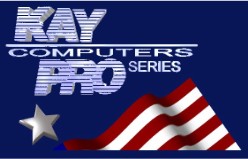
-
Solana Beach, California
|
The Wall Street Journal Interactive Edition -- April 25, 1997
ANYONE WHO HAS taken Psychology 101 knows about Abraham Maslow's "hierarchy of needs." People, Dr. Maslow found, strive to fulfill progressively higher levels of need, from nourishment, safety, love and esteem to "self-actualization." Dr. Maslow's findings helped form the foundation of modern psychology and set many forces into motion, from feminism to the pursuit of "peak experiences." It's less well known that Dr. Maslow, in the early 1960s, also delved deeply into management and economics. Setting up shop in a Southern California electronics plant, he produced a disarmingly farsighted journal applying the concept of self-actualization to both the workplace and the marketplace. "This is by far Maslow's best book," says Peter Drucker, perhaps the foremost management authority today. "It had enormous impact on me." The Front Lines Forum has moved to our Voices area. In its new and expanded format, more readers can post comments on Tom's latest column and he will jump in frequently with his answers and reactions. Yet after a limited run, Dr. Maslow's book slipped into obscurity. I received a copy from Charles Koch, whom I profiled last week. As unlikely as it seems, the long-forgotten tome by the counterculture icon helped the executive build Koch Industries into the nation's second-largest private company. What makes Dr. Maslow's book so special -- and why did it vanish? In 1962, a few years after postulating the hierarchy of needs, the Brandeis University professor took a summer sabbatical at a company in Del Mar, CA., called Non-Linear Systems. The company made volt meters in a converted blimp hangar. The owner, Andy Kay, had noticed that workers were most productive at the end of the line, where the finality of the assembly provided a sense of accomplishment. So Mr. Kay broke his work force into teams, each responsible for an entire product. IN A BIOGRAPHY called "The Right to be Human," author Edward Hoffman describes Dr. Maslow's incredulity over the spirit and productivity of the plant. Dr. Maslow picked up a tape recorder to capture his reactions. The result was a journal -- a bit odd, but full of freshness -- initially called "Summer Notes." In these ruminations Dr. Maslow coined the phrase "enlightened management" to describe the work conditions leading to self-actualization, or the achievement of one's full potential: trust, teamwork and recognition. Teams, he found, made better workers, and better workers made better teams. Creativity flowed from ambiguity. "Knowledge breeds knowledge." Dr. Maslow wanted a label for these self-reinforcing processes, and turned to a term anthropologists used for cooperation within a culture: synergy. The principle was fraught with paradox but full of value. "Generosity can increase wealth rather than decrease it," he wrote. "The more influence and power you give to someone else in the team situation, the more you have yourself." Writing when managers were taught to lock in any optimum state, he instead urged the pursuit of "continual improvement." Business was not, as commonly held at the time, a "chain of links or a chain of causes and effects," he said, but rather a "web" in which "every part is related to every other part." Remember that these thoughts date to the vintage of the Corvair, DDT and men-only flights from New York to Chicago, a time when the American Management Association described state-of-the-art leadership in a book called "Tough-Minded Management." What makes Dr. Maslow's ideas relevant is not merely that they were ahead of their time, but that they were asserted by someone with so profound a grasp of human nature. And it's worth noting that while Dr. Maslow anticipated today's conventional wisdom, "enlightened management" remains far from conventional practice. Indeed management suffers as much today from what Dr. Maslow then saw as the great enemy: generally accepted accounting principles, with their fixation on the short-term and the nonhuman. He foresaw a day when companies would record human capital and customer goodwill in their financial statements, initiatives with which a few companies, such as Skandia of Sweden, are finally experimenting. BY 1963, in any case, Dr. Maslow had given mimeographed copies of "Summer Notes" to several fellow academics. His friend Warren Bennis, a prominent university dean and business theorist, urged him to publish the journal commercially. "It was very radical for the time," Dr. Bennis, now at USC, recalls. Yet, he adds, "it never caught on." The main reason was a new title. Dr. Maslow's term for a society of self-actualizing people was "eupsychia," so he gave his book the ghastly title of "Eupsychian Management, A Journal." Dr. Bennis and Dr. Drucker tried to dissuade him, but Dr. Maslow was proud of his wordsmithing. The book did go through many printings through the early 1970s, but they were small. Only the terms "synergy" and "enlightened management" endured. Today, however, "Eupsychian Management" may be making a comeback. Koch Industries commissioned a small press run for internal use. Consultant Sam Cannon has posted the entire text on the World Wide Web at http://www.scarletfire.com/maslow. And Dr. Maslow's biographer, Dr. Hoffman, recently brought out Dr. Maslow's unpublished papers under the title "Future Visions." They include a speech by Dr. Maslow a year before he died in 1970, in which he predicted a "postMarxian" breakthrough in the workplace -- a triumph of trust and democracy "as revolutionary as the ideas of Galileo, Darwin or Freud." |
